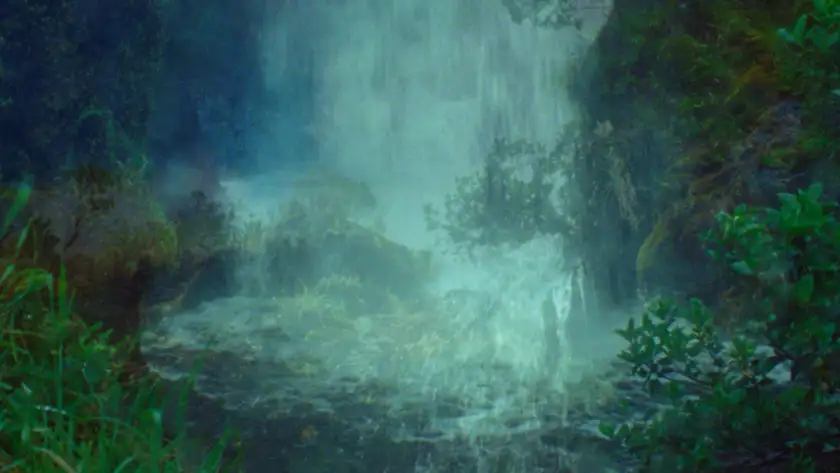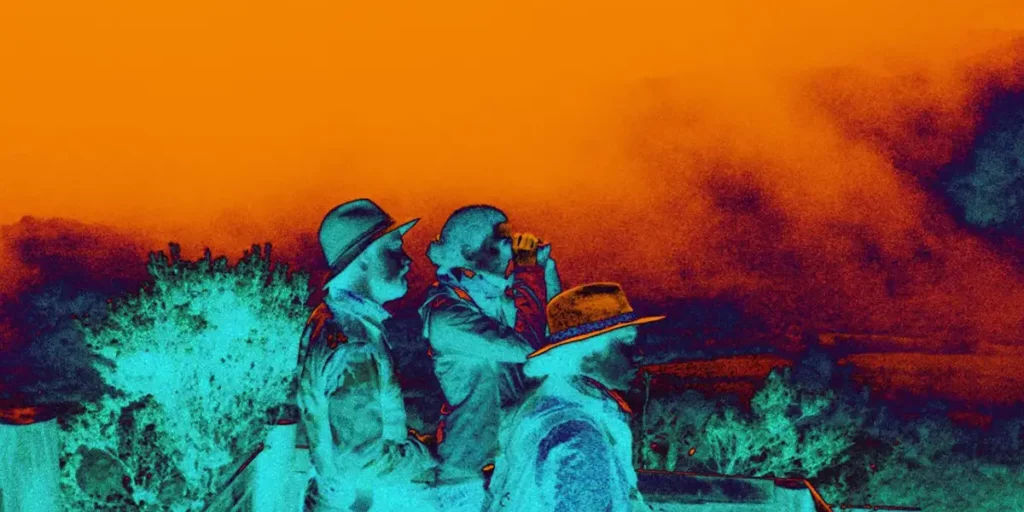With its exploration of South American history and its beautiful visuals, The Soldier’s Lagoon is an interesting and unique documentary.
Director: Pablo Álvarez-Mesa
Genre: Documentary
Run Time: 77′
Where to watch: at the Open City Documentary Festival on April 26, 2024
Wide Release: TBA
Directed by Pablo Álvarez-Mesa, The Soldier’s Lagoon (La Laguna del Soldado) is the second part of the director’s trilogy of films portraying Simón Bolívar’s passage in 1819, during the Liberation Campaign of Colombia. The combination of the history of natural trauma and historical trauma immediately appealed to me: the film sounded like a promising film on a subject that is often not spoken about or portrayed in media.
Screened as part of the Docs in Progress at Festival de Cannes 2023 and soon at the 2024 Open City Documentary Festival in London, The Soldier’s Lagoon was on the right track to be a visually rich and compelling documentary.
The Soldier’s Lagoon begins with a beautiful long shot of the Colombian landscape: there is no music or action in the opening scene, as the static landscape is only accompanied by a voiceover reading a quote attributed to Simón Bolívar. From then onwards, the film follows Simón Bolívar’s campaign into the Andean mountains. As we see the beautiful landscape of the South American Andes, a voiceover guides the audience through the actions that took place in the 19th century, driving particular attention to the environmental crime in the paramo ecosystem, a major source of water for the country, which is inherently connected to the history of colonial violence in the country.
The storytelling is very unique in The Soldier’s Lagoon. Much of the actual narrative is only conveyed to the audience through the voiceover, which starts with Bolívar’s quote and continues with interviews with various botanists, craftspeople, and historians who retrace the environmental and colonial history of Colombia. Visually, however, we don’t see much of this, as the documentary’s aesthetics focus almost exclusively on the current landscape of the Andes. While I liked the idea of a voiceover accompanying the camera’s journey through the mountains, it also felt increasingly repetitive and impersonal. Ultimately, it is hard to care about something we never really see.

In one of its final moments, The Soldier’s Lagoon also seems to reflect on the importance and power of recording these events. This is a very fascinating reflection, especially for a documentary that is, in itself, a recording the testimony of the historical events, but the film does not take much further does not explore it in all its complexities, choosing to keep its focus tight on the environmental crisis instead. At the same time, the film’s attention to environmental crimes is also fascinating but perhaps a little bit limiting, especially given the other interesting ideas that we see in the movie.
In terms of storytelling, I could not help but feel that the documentary only got interesting in its last act, but just when it was finally able to grab my attention, it ended, leaving so many stones unturned and questions unanswered. When we finally see a personal story, everything becomes a lot more real and personal, but The Soldier’s Lagoon does so too late, spending too much time – and too much of its voiceover – on general statements that failed to grab my attention or portray the stakes and importance of this film – in its first half.
While its plot may be interesting and the story fascinating, I had as many questions about the Liberation Campaign of Columbia – if not more – when I finished watching The Soldier’s Lagoon as I did before the film introduced the historical events to us. Admittedly, a documentary does not always have to teach something to its audience, but in this case, the film is set up to inform the audiences of the realities of the conflict, both from its environmental impact and in terms of its racial and colonial violence. Perhaps this is a documentary that may be better suited for a viewer who is already familiar with this historical context, but it also feels like a missing opportunity to introduce the wider audience to such an important moment.
The movie is fascinating in its narration, as well as its portrayal of the country it is set in. But what does this film ultimately tell us about the realities of modern-day Colombia 200 after Simón Bolívar’s liberation campaign across the country? Not much. Overall, The Soldier’s Lagoon is a compelling movie on a topic that is not often talked about or shown at all in popular media. At the same time, it is a film that could have done more with its premise and use of the documentary technique.
The Soldier’s Lagoon will be screened at the Open City Documentary Festival on April 26, 2024, followed by a Q&A with Pablo Álvarez-Mesa.

